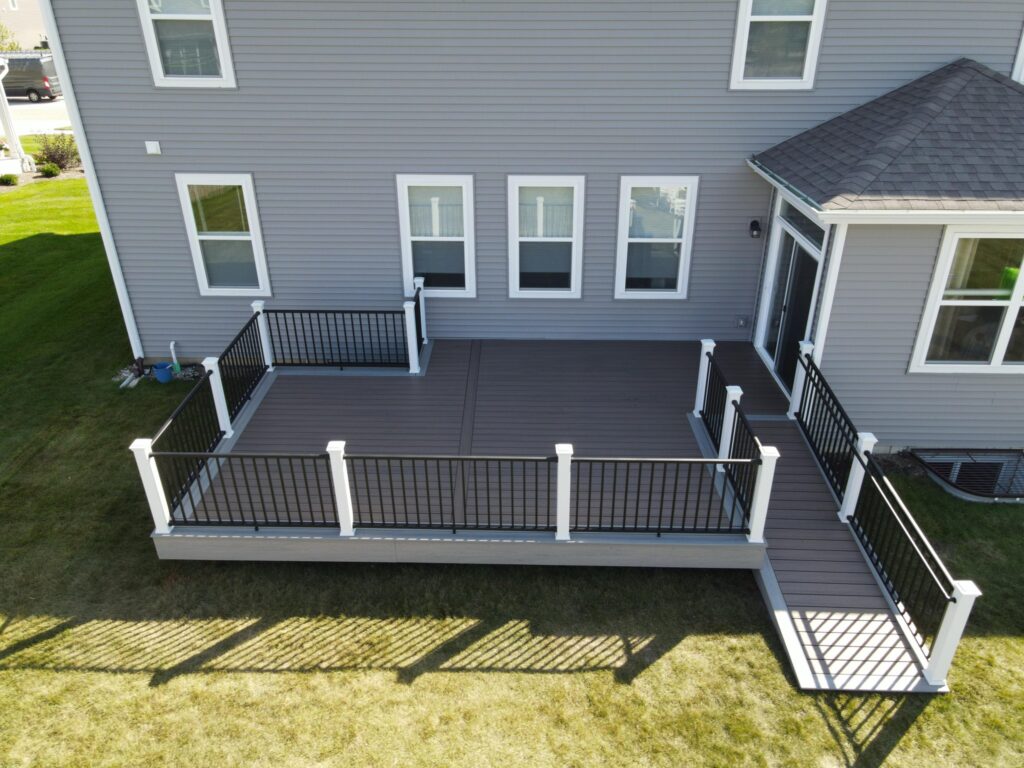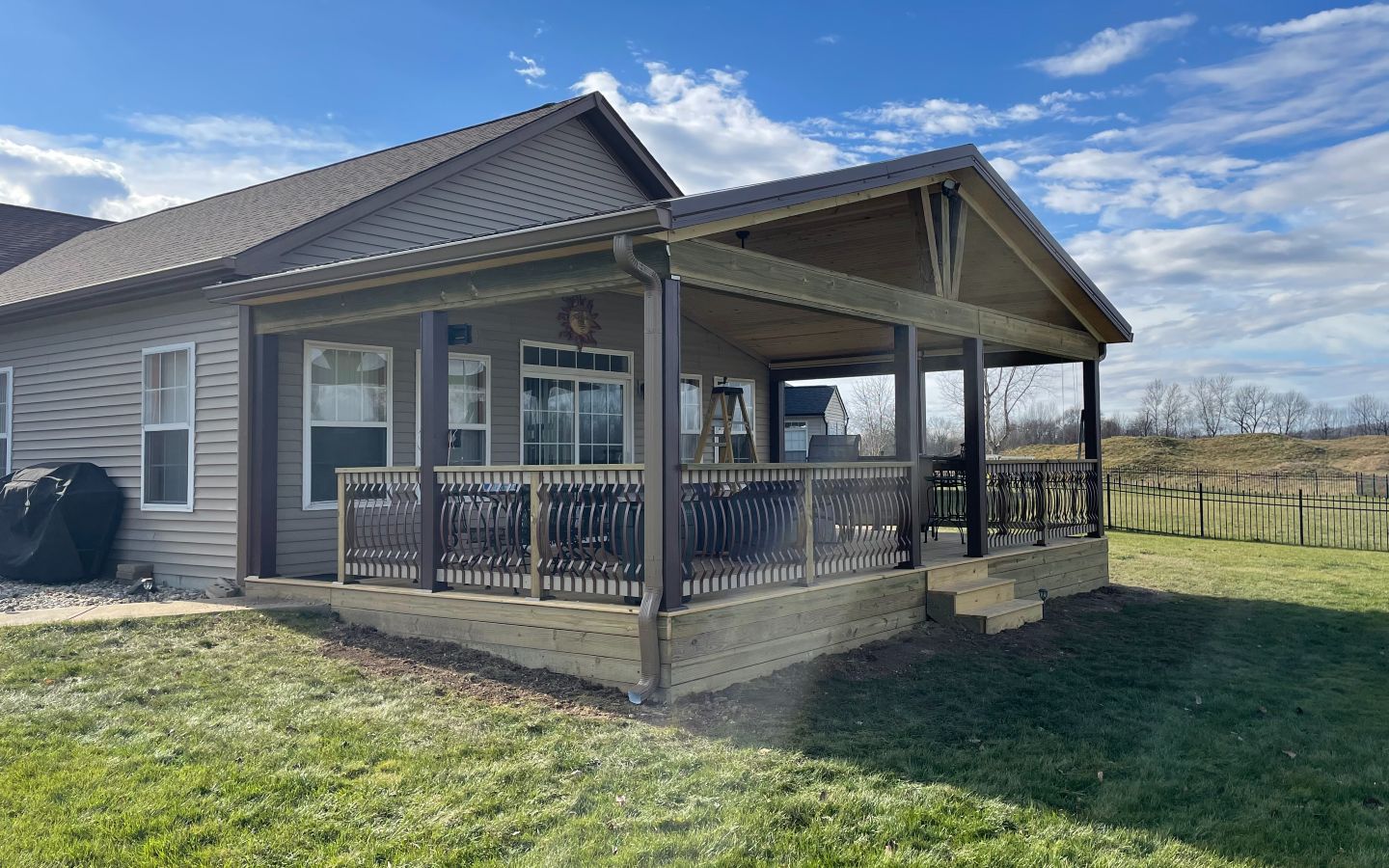Craft the perfect hangout spot with Deck Builders Near Me
Craft the perfect hangout spot with Deck Builders Near Me
Blog Article
Exploring Numerous Types and Advantages of Deck: A Comprehensive Overview
The outside deck is greater than just an extension of one's living area; it's a testimony to individual style, a place for social gatherings, and a shelter to loosen up. The selection of outdoor decking product dramatically affects these aspects, with options varying from the traditional appeal of timber to the usefulness of composite, and the longevity of light weight aluminum. Understanding the nuances of these products is important, so let's begin our exploration, one deck kind at a time.
Recognizing the Fundamentals of Outdoor Decking Material
Outdoor decking material serves as the foundation of any deck job, dictating the total looks, durability, and performance of the end product. The market supplies a large variety of materials, each with one-of-a-kind attributes fit to different design choices and ecological problems. The option consists of natural wood, composite, plastic, aluminium, and also concrete. Wood, being the traditional option, offers a timeless, classic charm. Composite, a combination of timber and plastic, supplies wood-like aesthetic appeals with much less maintenance. Plastic and aluminium provide modern-day, minimalistic alternatives, while concrete is preferred for its unmatched toughness. The option of material significantly affects the deck's life expectancy, upkeep needs, and resistance to elements. As a result, recognizing the essentials of decking product is vital for a successful deck project.
Advantages and Disadvantages of Timber Decks
In evaluating deck types, comprehending the pros and cons of timber decks comes to be crucial. This entails considering variables such as the kind of timber picked and its effect on the deck's performance. The succeeding discussion will explore these factors carefully to offer a detailed view of the drawbacks and benefits associated with wood decks.

Wood Deck: Pros & Disadvantages
The appeal of wood decks can not be overemphasized. They exude a timeless allure and warm visual that lots of property owners locate tempting. This all-natural material is flexible, permitting a variety of design opportunities, and can supply an outstanding return on investment.
Nevertheless, timber decks likewise include particular downsides. They require consistent upkeep, including regular cleaning, discoloration or painting, and prospective substitute of deformed or rotten boards. Wood is likewise susceptible to harm from bugs and extreme climate condition. Its long life can be much less than various other outdoor decking products, particularly if not correctly taken care of.
Picking Your Wood Kind

Exploring the Benefits of Compound Decking
Turning interest to composite decking, it supplies special benefits. Its durability exceeds typical timber in rough weather, decreasing the need for frequent maintenance. Moreover, it supplies a pleasing visual appeal with variable design alternatives.
Compound Decking Resilience Conveniences
Regardless of the wide variety of decking options readily available in the market, composite outdoor decking stands apart for its longevity. This sort of outdoor decking, made from a mix of timber and plastic, supplies a resistant, durable system immune to aspects that typically degrade other products (Best Deck Builders Near Me). It does not crack, splinter, or warp, ensuring a regularly smooth surface for several years. Moreover, it's unsusceptible to harm from insects such as termites, contributing to its longevity. The find more info inherent resistance to fading, discoloration, and damaging is an additional notable benefit. This makes it a perfect selection for outside spaces or high-traffic locations revealed to extreme weather condition problems. In summary, the sturdiness advantages of composite outdoor decking provide a lasting, cost-efficient option for outside home.
Maintenance of Compound Decks
Along with sturdiness, composite decking boasts a major benefit in regards to upkeep. Unlike standard timber decks, composite decks are not susceptible to rot, warp, or insect damage, thus substantially reducing the demand for normal repair work and replacements. They also need no discoloration, sanding, or paint, making them a time-saving alternative for house owners. Cleaning up a composite deck is a straightforward job, commonly only calling for a sweep or a mild wash with a light soap and water. The low-maintenance nature of composite decks not just offers convenience of upkeep yet likewise contributes to their long-lasting cost-effectiveness. This useful benefit, integrated with the material's intrinsic resistance to weathering and degeneration, makes composite outdoor decking a preferred choice for lots of people looking for a easy and durable outdoor decking service.
Aesthetic Charm and Variability

The Rising Appeal of Light Weight Aluminum Decks: Why Select Them?
As the need for sturdy and low-maintenance decking surges, light weight aluminum decks are significantly becoming the best alternative for lots of house owners and contractors. These decks, made from a lightweight yet tough metal, use a number of benefits over standard wood or composite decks. To start, light weight aluminum is naturally resistant advice to the aspects, suggesting it won't warp, fracture, or fade over time. This makes it a cost-efficient choice in the lengthy run. Additionally, its non-porous surface area stops the development of pests, fungis, or molds, guaranteeing a healthy and tidy exterior area. Light weight aluminum decks are likewise eco-friendly, as they are usually made from recycled products and can be reused once again at the end of their lifespan. Their smooth and modern visual charm fits well into modern home styles.
Maintenance Tips for Different Decking Products
Natural wood decks require regular discoloring or sealing to prevent weather condition damages, while composite decks require routine cleansing with soap and water to eliminate spots and debris. Comprehending these maintenance requires is vital for deck owners to optimize their investment and maintain their decks looking their best for years to come.
When Picking Your Deck Kind, variables to Take Into Consideration.
Composite decks resist moisture well, making them ideal for wet or moist areas. While some may desire an extravagant, exotic timber deck, spending plan restrictions could demand a much more economical selection like pressure-treated wood. Therefore, climate, way of life, price, and maintenance are essential considerations in deck selection.
Final thought
Timber decks captivate with natural beauty, while composite and light weight aluminum ranges supply toughness and low maintenance. Prior to committing to a specific deck kind, house owners need to very carefully consider the advantages, drawbacks, and upkeep needs of each material.
In assessing deck types, understanding the pros and disadvantages of timber decks ends up being critical.In spite of the wide variety of decking alternatives offered in the market, composite outdoor decking stands out for its durability. Unlike traditional wood decks, composite decks are not prone to rot, warp, or insect damages, therefore substantially minimizing the demand for routine repairs and substitutes. These decks, made from a lightweight yet sturdy metal, supply several benefits over traditional wood or composite decks. Natural wood decks require regular securing or discoloring to prevent weather damages, while composite decks need routine cleaning with soap and water to get rid of stains and debris.
Report this page